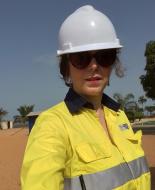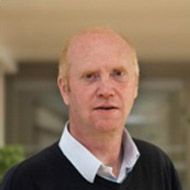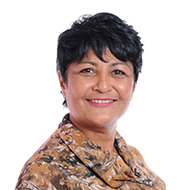Kate is a self-employed Environmental Adviser who provides specialist environmental and social advice to the mining industry world-wide. She also sits on the Board of two mining companies as a Non-Executive Director, particularly focusing on sustainability issues and aspects covered by the IFC Performance Standards (2012) and the Equator Principles (2013). Whilst Kate's work can be highly varied, responsibilities may include aiding junior mining companies with developing their policy frameworks and management system; coordinating the implementation of multimillion dollar environmental assessment processes; assisting companies in carrying out stakeholder engagement; or monitoring environmental and social performance during construction and operation of new projects on behalf of lenders.
Kate's career in the mining industry began at an international consulting engineering company as their first UK-based Environmental Specialist. This experience gave her a broad exposure to the industry both in the UK and overseas. For 12 years, she also worked as a guest lecturer at Cardiff University, teaching a module of Environmental Management to third-year Environmental Engineering students. In 1998, she became self-employed following parental leave to allow her to balance time at home with international travel. She also worked as a Director of Environment, Health & Safety, Communities and Security for a natural resource company for two years during this time, however, prefers the variety of work that self-employment affords.
"Getting to know local project teams and working with them to build their understanding of the ESIA [Environmental Social Impact Assessment] process and the environmental management of project activities is hugely rewarding and these people remain friends long after our individual involvement in the projects may have moved on."
She is currently working on an exciting bauxite project in West Africa which has some really interesting biodiversity. Her and her team have largely been able to design the project while developing set-asides and offsets to ensure there is a net gain for biodiversity in line with PS6. During this project, they have found a plant species new to science which occurs in an area that won't be minded for at least 10 years. The team plan to determine whether the species can be found elsewhere and take action from there.
"Often the baseline surveys we are carrying out for these multi-million dollar projects are the first of their kind in the region, so we are bound to find interesting things."
Kate joined the IES in 1991, the same time as joining the first consulting engineering company. In 2005, she became a Chartered Environmentalist, which was shortly after the Charter was established.
Now with nearly 27 years' experience, she plans on applying for Fellowship, the highest grade of membership in the IES. In the future, she wishes to spend more time developing the public's understanding of mining, particularly gold mining, and the awareness of ethical and free trade gold. One day, Kate wishes to finally take the gap year she's yet to have!




